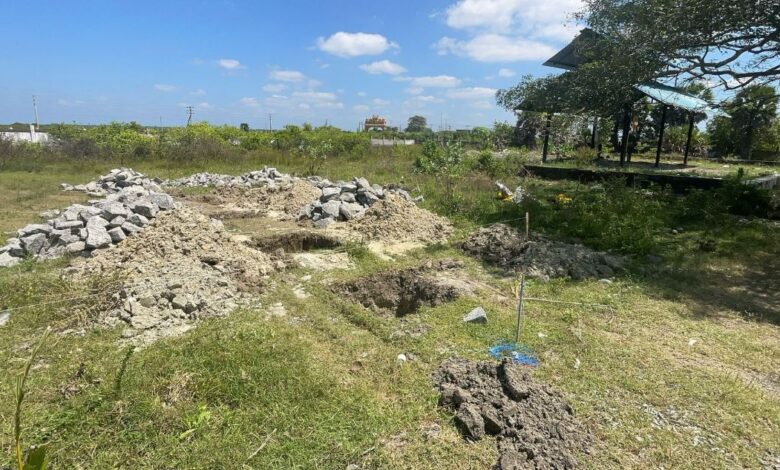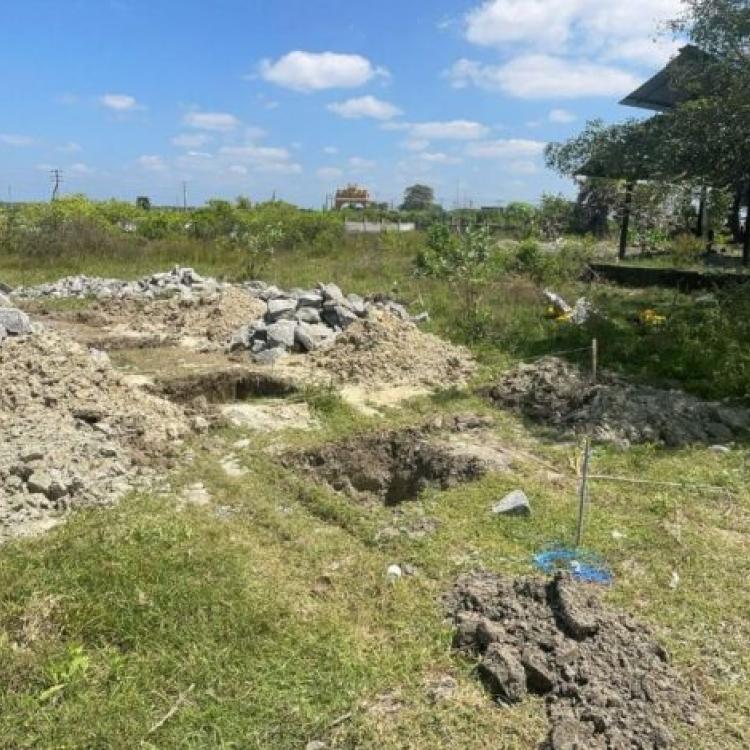
Excavation efforts at a cemetery in Chemmani, Jaffna, where human skeletal remains were recently uncovered, have stalled due to a lack of Sri Lankan government funds, the Jaffna Magistrate’s Court was told on Friday.
The remains were discovered while digging a pit to construct an electric cremation platform at the Hindu cemetery in Chemmani. Following the discovery, a complaint was lodged with the Jaffna Police Station, and court-ordered excavation activities were launched to investigate the site further.
However, court proceedings on 12 April revealed that funding for the continued excavation had not been made available. Officials cited financial constraints as the primary reason for the delay, prompting the Magistrate to postpone the case until 21 April 2025.
The site is just metres from the location of one of Sri Lanka’s most notorious mass graves.
In 1998, eyewitness reports led to the unearthing of a mass grave in Chemmani linked to the disappearance of Tamil youth following their detention by the Sri Lankan military. A soldier came forward during the trial of fellow servicemen accused of the rape and murder of schoolgirl Krishanthy Kumaraswamy, revealing that hundreds of Tamils had been buried in Chemmani.
Though investigations were launched and human remains were uncovered at the time, including at least 15 skeletons in 1999, the government failed to follow through on full exhumation or accountability. Human rights groups and Tamil families have consistently called for further excavations, believing that many more bodies remain buried in the area.
The recent discovery has renewed calls for comprehensive excavation and international oversight. Tamil civil society organisations have long accused successive Sri Lankan governments of deliberately stalling investigations into atrocities, including the use of financial and bureaucratic obstacles to prevent justice.
The latest delay over funding has fuelled concerns that the government is once again attempting to obstruct investigations into Chemmani’s legacy.


